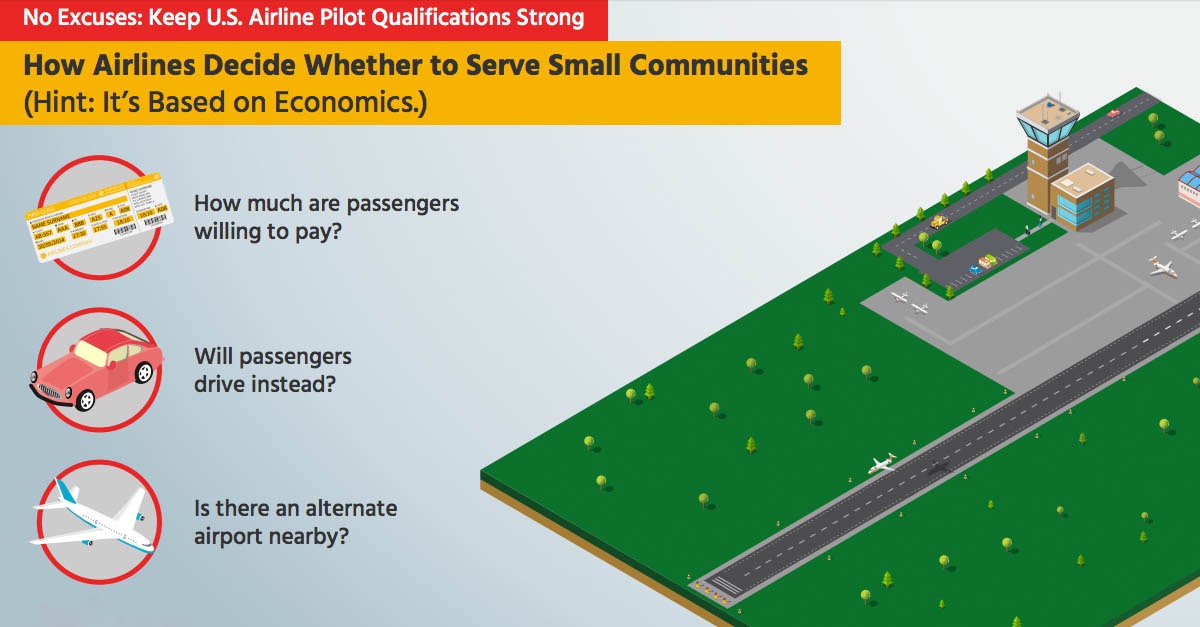In case you missed it, last week ALPA released two new fact sheets revealing that a credible analysis of the data contradicts any claim that a pilot shortage is causing airlines to stop serving smaller communities and discredits calls by some airlines to weaken pilot qualification and training rules that make air transportation safer for passengers and air cargo shippers.
“Claims that a pilot shortage is behind any changes in rural community air service are easily dismissed when you look at the facts of what’s actually happening at smaller airports,” said Capt. Paul Ryder, ALPA’s national resource coordinator. “Airlines make decisions about where they fly based on what’s best for their bottom line—namely how many passengers will buy tickets and how much they’re willing to pay”.
ALPA’s fact sheet shows that many factors influence a route’s profitability, but it is primarily based on passenger travel decisions.
In addition, another new ALPA fact sheet shows that, while the number of flights into and out of small communities may shift and even decrease with seasonal demand or new competition, the number of available seats in many areas is actually increasing due to the use of larger aircraft.
Click here for more information on why the United States must keep pilot qualifications strong.


